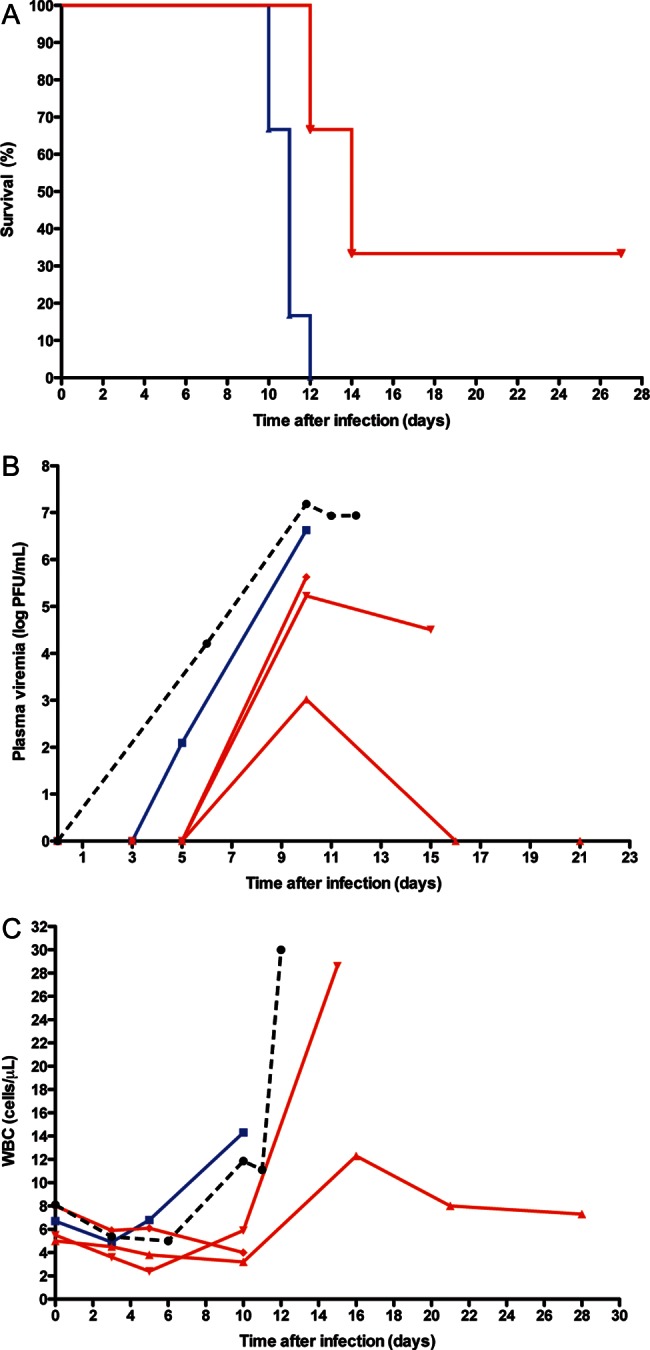Figure 3.

Interferon beta (IFN-β) therapy provides a survival benefit in experimental Marburg virus (MARV) infection. A, Mortality. Rhesus macaques were infected with 1000 plaque-forming units of MARV-Musoke and treated with (i) recombinant human IFN-β at 35 µg/kg, 1 hour postinfection and every day until day 14 (n = 3; red line) or (ii) an equivalent volume of sterile saline at identical time points as a control (n = 1, supplemented with 5 historical controls: total n = 6; blue line). The intraexperimental control animal succumbed on day 11 postchallenge, while 1 of the 3 macaques that received IFN-β treatment was protected from infection and survived past the study endpoint. Omitting this surviving animal, the mean time to death for the IFN-β–treated experimental group was 14.5 days, whereas the mean time to death was 10.8 days in the control group (intraexperimental control died on day 11, P = .0186, Wilcoxon rank-sum test.) B, Viremia. Plasma MARV-Musoke kinetics in individual macaques treated with IFN-β (n = 3; red lines), and saline (n = 1; intraexperimental control; blue line). Mean plasma viremia for 6 available matched, untreated MARV-Musoke historical control animals is provided for reference (black dashed line). C, Peripheral blood leukocytes. Peripheral blood white blood cell kinetics in experimental macaques and available (n = 6) historical controls. D, Peripheral blood lymphocytes. Kinetic analysis of lymphocytes in macaques infected with MARV and treated daily with IFN-β (n = 3; red lines) or saline (n = 1; blue line). Abbreviations: PFU, plaque-forming units; WBC, white blood cell.
